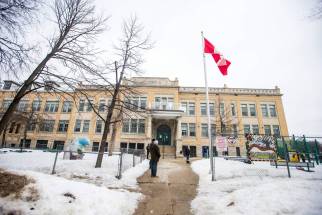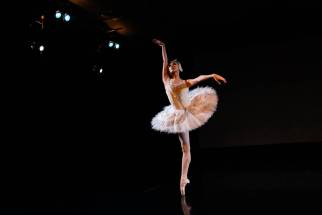Crime and punishment Local arts groups recognize Russian atrocities, but won’t ban country’s cultural offerings
Read this article for free:
or
Already have an account? Log in here »
To continue reading, please subscribe:
Monthly Digital Subscription
$0 for the first 4 weeks*
- Enjoy unlimited reading on winnipegfreepress.com
- Read the E-Edition, our digital replica newspaper
- Access News Break, our award-winning app
- Play interactive puzzles
*No charge for 4 weeks then price increases to the regular rate of $19.00 plus GST every four weeks. Offer available to new and qualified returning subscribers only. Cancel any time.
Monthly Digital Subscription
$4.75/week*
- Enjoy unlimited reading on winnipegfreepress.com
- Read the E-Edition, our digital replica newspaper
- Access News Break, our award-winning app
- Play interactive puzzles
*Billed as $19 plus GST every four weeks. Cancel any time.
To continue reading, please subscribe:
Add Free Press access to your Brandon Sun subscription for only an additional
$1 for the first 4 weeks*
*Your next subscription payment will increase by $1.00 and you will be charged $16.99 plus GST for four weeks. After four weeks, your payment will increase to $23.99 plus GST every four weeks.
Read unlimited articles for free today:
or
Already have an account? Log in here »
Hey there, time traveller!
This article was published 23/03/2022 (1355 days ago), so information in it may no longer be current.
Vladimir Putin is conducting an invasion, not an orchestra.
It’s an important fact to recognize for those who believe the Russian president’s decision to send his army and countless missiles into Ukraine should mean any artist of the past and present with Russian ties be banned from stages around the world, including in Winnipeg.
The artistic ruins left behind wouldn’t be as tragic as those seen in pictures from Ukraine, but the removal of Russian artists’ voices from this year and yesteryear would be missed.
Removing them would be a task as fruitless as it would be foolhardy.
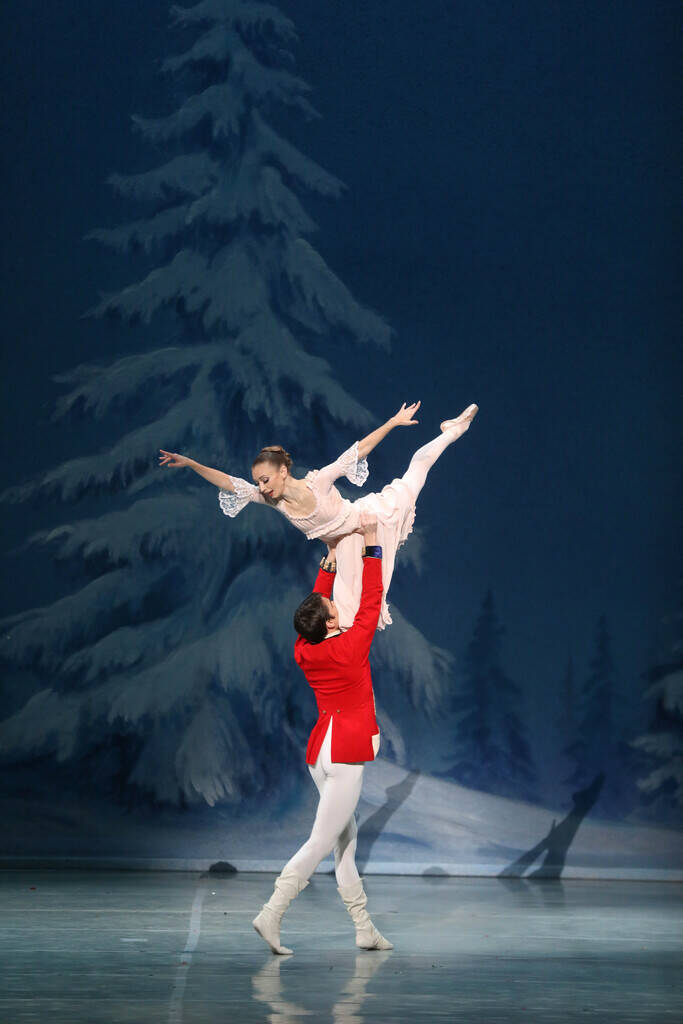
To excise Russia’s involvement in the ballet world and its elegant history, for instance, would mean saying farewell to famous works that have become part of our culture.
Take Nutcracker, the beloved holiday ballet that uses the famous music of Russian composer Pyotr Ilyich Tchaikovsky. The ballet, and his music, has become as synonymous with Christmas as carols such as Silent Night and Jingle Bells.
It has been a December staple for the Royal Winnipeg Ballet, at the Centennial Concert Hall or on tours across Canada or around the world.
While choreographers have added many Canadian flourishes to the ballet over the years, Tchaikovsky’s famous music remains.
Other famous ballets, such as Swan Lake and Sleeping Beauty, which combined Tchaikovsky’s music with choreography from French ballet master Marius Petipa, are also among the world’s most popular ballets.
RWB tribute to Ukraine
The Royal Winnipeg Ballet presents Fast Forward, a selection of contemporary dances, Friday through Sunday at the RWB Founders’ Studio at 380 Graham Ave.
The company’s special musical performance is a tribute to the people of Ukraine that was inspired by the notes of a Ukrainian violinist playing during the initial bombardment of Kyiv on Feb. 22.
The Royal Winnipeg Ballet presents Fast Forward, a selection of contemporary dances, Friday through Sunday at the RWB Founders’ Studio at 380 Graham Ave.
The company’s special musical performance is a tribute to the people of Ukraine that was inspired by the notes of a Ukrainian violinist playing during the initial bombardment of Kyiv on Feb. 22.
Illia Bondarenko filmed himself playing Verbovaya Doschechka, a Ukrainian folk song, in a basement shelter during the shelling. and the video inspired 94 Ukrainian violinists from 29 countries around the world to join in later in a YouTube video (wfp.to/violin) to raise funds for Ukrainian relief.
“It’s really touching what he did,” says André Lewis, the artistic director and chief executive officer for the RWB. “He’s this incredible violinist and then a whole series of other violinists said, ‘We’re joining with you because we want to show our support.
“’The best way for us to show our support for Ukraine is through our art form.’”
Tickets for the performances — Friday and Saturday at 7:30 p.m. and Sunday at 2 p.m. — can be purchased online at rwb.org.
”We don’t plan on not doing these works, because I don’t think Petipa (or Tchaikovsky) had anything to do with what’s happening in this terrible humanitarian tragedy,” says RWB artistic director and chief executive officer André Lewis. “Of course, it would be punishing our dancers if we don’t do these works and we don’t think that’s fair.”
Performances of another famous Tchaikovsky composition, his bombastic 1812 Overture, have been removed from programs in the United Kingdom and Japan, with some suggesting the composer’s celebratory commemoration of Russia’s 1812 defence against Napoleon — another European dictator with grand designs of conquest — wouldn’t be welcome in 2022.
But orchestras can’t simply swap out performances of Russian composers of the classical music canon and replace them with others more in tune with today’s political situation, says Daniel Raiskin, the music director at the Winnipeg Symphony Orchestra, who last month helped his wife and mother-in-law, who are Ukrainian, escape the war-torn country.
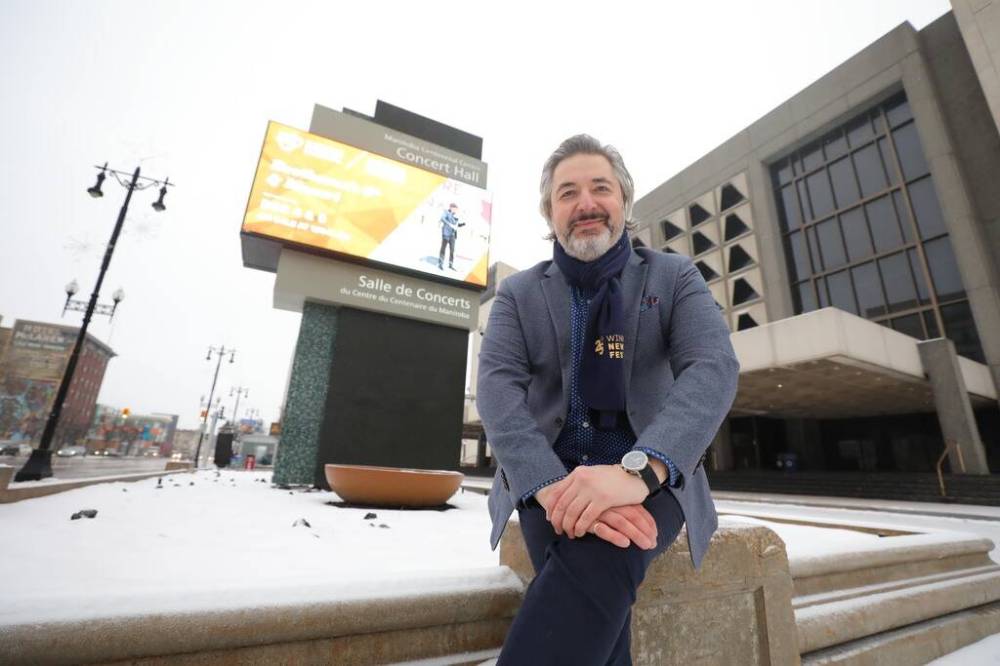
“We are not going to punish the great Russian composers by suddenly replacing their works with Brahms and Schubert, but are staying committed to our programming in encompassing as many directions and styles as possible,” Raiskin said in an interview with the Free Press after returning his family to safety.
The Russian-born conductor also draws a line at banning works by Russian luminaries such as Tchaikovsky, who spent time in Ukraine and incorporated many of the country’s folkloric elements in his music.
Earlier this month, Raiskin was scheduled to conduct a WSO performance of Tchaikovsky’s Violin Concerto with Ukrainian-born Israeli violinist Vadim Gluzman. The concert went on as scheduled, with associate conductor Julian Pellicano at the podium in Winnipeg while Raiskin was in Europe with his family.
“If anything, we should try to continue showing the human face of what Russian culture really is, and how it only speaks to the highest levels of humanity,” Raiskin said.
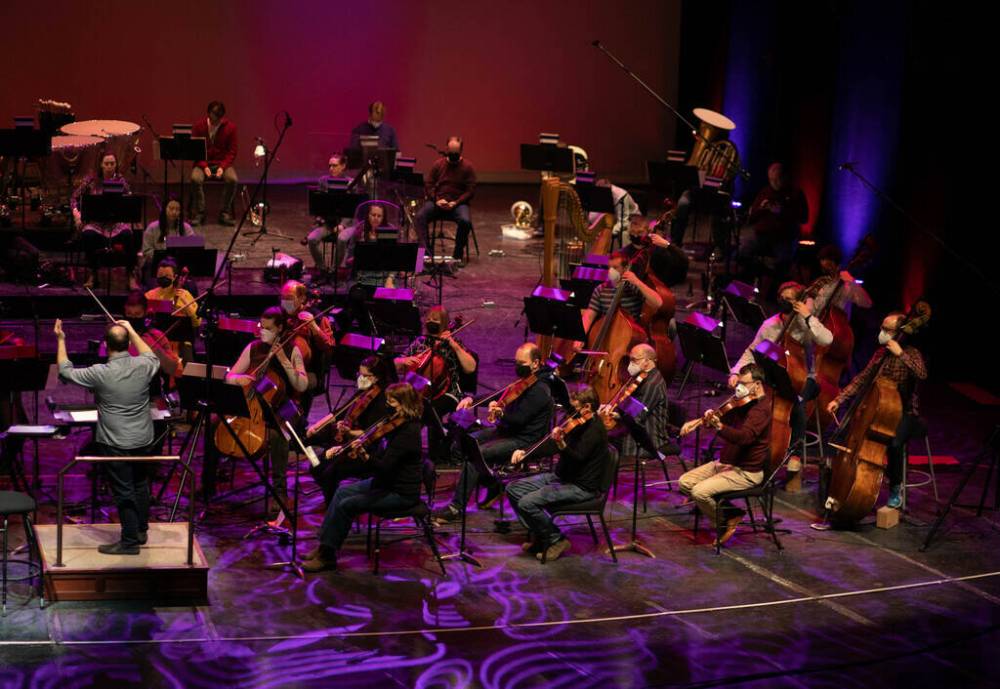
The WSO has posted on its website that it stands with Ukraine and the Manitoba Ukrainian community. It also stands in support of Raiskin, who was born in St. Petersburg but fled the Soviet Union while on tour in the Netherlands in 1990, and has since become a Dutch citizen.
While Raiskin has gone public in his opposition to Russia’s invasion of Ukraine, Russian artists close to Putin and the government establishment have become targets of artistic sanctions.
The Munich Philharmonic in Germany has parted ways with Valery Gergiev, its chief conductor, over his close ties to Putin, which included concerts in former Russian war zones in Syria and South Ossetia, a region in the republic of Georgia that Russia invaded and took control of in 2008.
Moscow’s Bolshoi Ballet, which performed around the world during the chilliest days of the Cold War, was told to stay home rather than take the stage at London’s Royal Opera House this summer.
Meanwhile, Olga Smirnova, the Bolshoi’s prima ballerina and critic of Russia’s invasion, quit the company and joined the Dutch National Ballet.
“I never thought I would be ashamed of Russia; I have always been proud of talented Russian people, of our cultural and athletic achievements. But now I feel that a line has been drawn.” – Bolshoi’s former prima ballerina Olga Smirnova
“I never thought I would be ashamed of Russia; I have always been proud of talented Russian people, of our cultural and athletic achievements,” she posted on the messaging app Telegram. “But now I feel that a line has been drawn.”
No one knows when Putin’s invasion, nor the artistic reaction to the tragedy, will end.
In the meantime, the war eats at our soul, with the arts providing a modest salve against the horrors beamed back to Winnipeg via newspapers, television and social media.
“We need all these wonderful things, whether it’s a painting, a great book, a play, ballet, or a beautiful melody,” Raiskin said.
“All of these things remind us that there is there is still beauty in the world, and as long as we’re able to produce that, we will be able to defeat evil. We will be able to keep an upper hand.
“As artists, it is our duty to keep a balance between the awful, aggressive and inhuman, and beautiful and fragile and enlightened and kind.”
— with files from Holly Harris
Alan.Small@winnipegfreepress.com
Twitter: @AlanDSmall

Alan Small has been a journalist at the Free Press for more than 22 years in a variety of roles, the latest being a reporter in the Arts and Life section.
Our newsroom depends on a growing audience of readers to power our journalism. If you are not a paid reader, please consider becoming a subscriber.
Our newsroom depends on its audience of readers to power our journalism. Thank you for your support.

